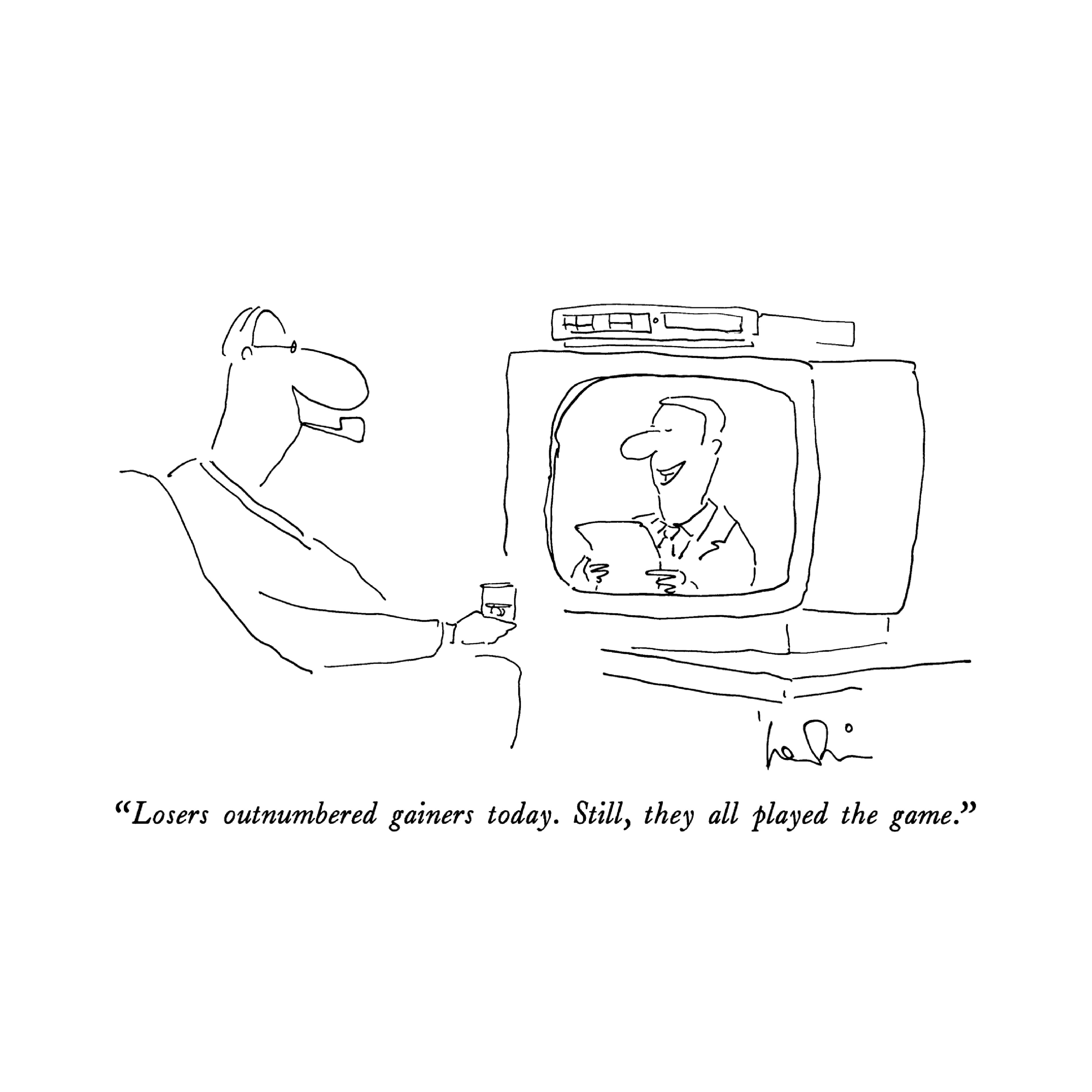Remuneration: A Loser’s Game

Chief Marketing Officers and their colleagues in procurement have been driving down agency remuneration for more than a decade. Simultaneously, they have been growing Scopes of Work, experimenting with digital and social marketing.
Is marketing getting something for nothing, or is it playing a loser's game?
Advertiser-agency relationships have devolved over the past several decades. What was once the strongest of strategic relationships during the golden age of the Creative Revolution has become lopsided and imbalanced. It's become a buyer's market for advertisers, who change agencies with regularity and drive down remuneration with every pitch. Advertisers seek "best in class" agencies who specialize by media, and the definition of "best in class" is a fluid one. It cannot be based on "who delivers the best results," because agencies do not hang around long enough to deliver improved results. Their relationships with their clients last no longer than the tenure of the CMOs for whom they work -- and CMOs, per research by Russell Reynolds, have the highest turnover among executives in the C-Suite.
Advertisers never made a conscious decision to marginalize agencies. Marginalization was the outcome of the shift from media commissions to labor-based fees; the rise of brand globalization; the adoption of "shareholder value" as the corporate mantra; the empowerment of procurement to drive down costs, and the digital and social revolutions, which fragmented agencies into specialized suppliers and led to astounding increases in marketing SOW workloads.
This sequence of market changes saw advertisers initiate change while their agenciesreacted to change. Their relationship was like a tennis match, where one player charged the net and the other fell back on its heels. A pattern of "winner" and "loser" developed early during this transition, except that there were no real winners. Agencies reacted to fee reductions by downsizing and "juniorizing," reducing their strategic and creative capabilities at a time when their clients' marketing problems were growing in complexity. Everyone was a loser.
Advertisers' brands remain stagnant today, contributing to CMO and agency turnover. Many legacy brands have failed to manage the customer transition from baby boomers to Millennials or to deal successfully with rise of online commerce. Their agency partners, marginalized over the past decade, are not able to help.
Marketing is playing a loser's game, even though it looks like they are getting more agency output at lower cost.
Looking ahead, CMOs should rethink their priorities, and instead of concentrating on marketing cost reduction as their way of delivering improved results, they should step up to the greater challenge: How to get their brands moving again. Their portfolio of agencies should be simplified and reduced. Their agencies should be encouraged to develop a full range of media capabilities and, most importantly, to dedicate themselves to developing media and creative solutions that drive brand growth.
Advertiser-agency relationships built on a mutual commitment to drive brand growth might succeed -- and the CMOs who establish such relationships might last in their jobs longer than 3-4 years. But this will require a different form of agency remuneration. CMOs should consider paying agencies for the SOW deliverables that are agreed and carried out rather than continuing the labor-based fee formulas that have so clearly failed over the past two decades.
Advertisers and agencies have been playing a loser's game. It's time to invent a new game, where both parties can win and add genuine value for shareholders.
Cartoon Credit: Arnie Levin, The New Yorker, The Cartoon Bank. With permission.
Click the social buttons above or below to share this story with your friends and colleagues.
The opinions and points of view expressed in this article are exclusively the views of the author and/or subject(s) and do not necessarily represent the views of MediaVillage.com/MyersBizNet, Inc. management or associated bloggers.


